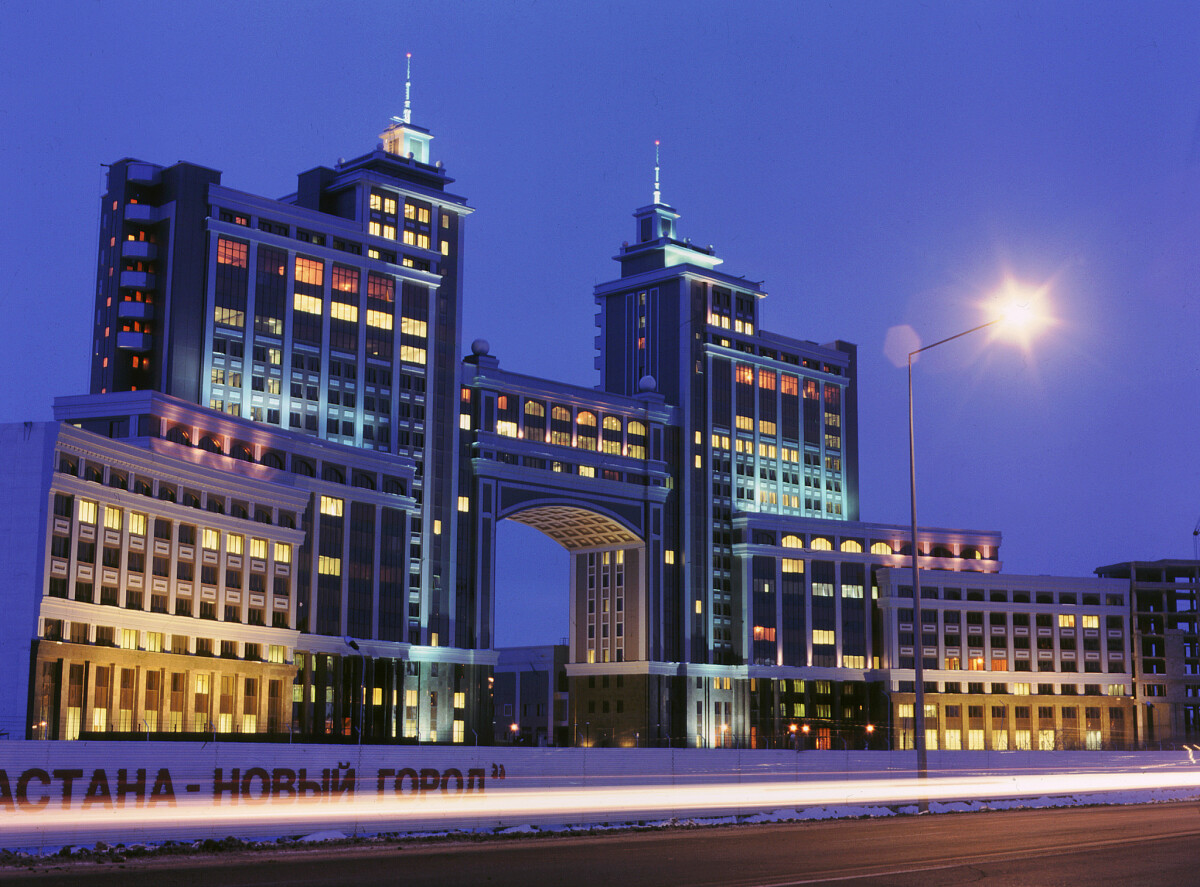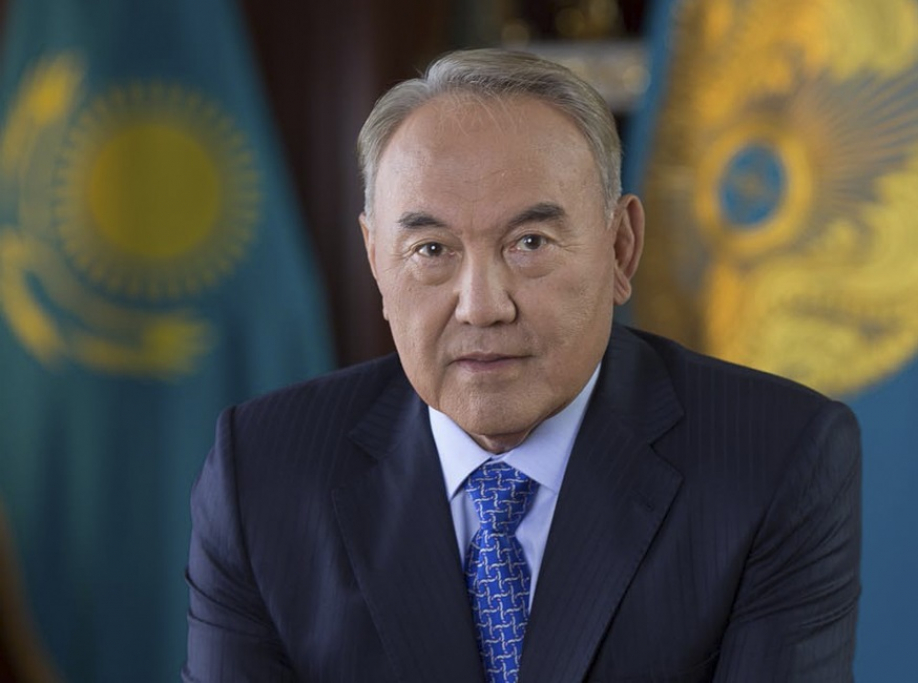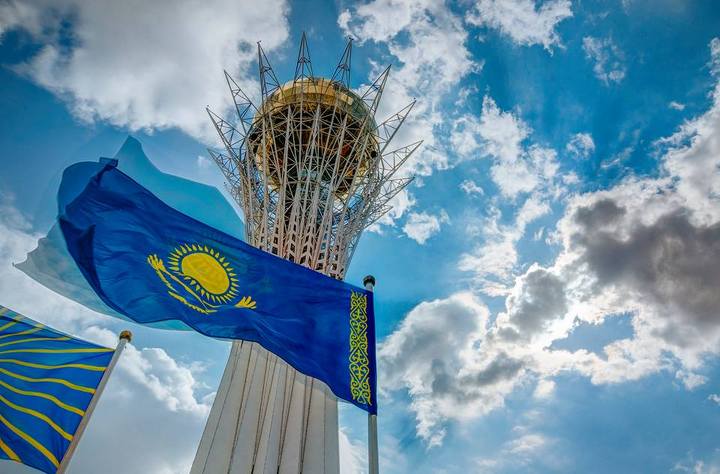
And the current heirs of the ancient Kazakh steppe - Kazakhs, together with representatives of more than 100 ethnic groups who recognized by the will of fate the ancient country of nomads as their second Motherland, present a new Kazakhstan today [1].
During independence Kazakhstan, having passed through the difficult way of forming effective state institutions, socially oriented market economy, as well as a unique model of interethnic and inter-confessional consent, through democratic renewal and through the formation of civil society has become an example for many countries in the post-Soviet space.
The collapse of the once powerful Soviet empire led to the emergence of new independent states on its ruins. At that difficult time, before the people of Kazakhstan, and in the first stage of its titular nation, the task was to build a new state. At the head of such a complicated business, at the beginning of a great work, when the destiny of a whole country depended on their performance, there was, of course, the First President of the RK - a Leader of the nation Nursultan Nazarbayev.
Modern Kazakhstan is a successful, steadily developing country, occupying its rightful place among world processes. A stable internal political environment, interethnic and interreligious understanding, a wise and pre-conceived state structure are, of course, the results of Nazarbayev’s consistent policy, who has become a common leader for the entire population of the Republic of Kazakhstan.
Perhaps after Nazarbayev, the new president of Kazakhstan will criticize everything that was done in the first decade of independence. There may be, perhaps, those who will refute all achievements of the republic, referring to the fact that the actual is not exactly in line with the planned. However, the main merit of Nazarbayev is that he went down in history as the founder of Kazakhstan as a modern state. Nobody will dare to challenge the fact that the current head of the republic united the former repressed peoples of the Soviet Republic into a single nation of Kazakhstan, thanks to his support and confidence, turned the Kazakh SSR into a socially oriented republic that was a raw material appendage of the Soviet state [2, 6].
As you know, the construction of an independent state and the activities of the President are identical concepts. Of course, a lot has been done in our state-building business. Among them: many events that raise national pride and enrich our spiritual consciousness. About this, to some extent, it has been said and written many times. Undoubtedly, throughout the history of their statehood, the Kazakhs suffered severe trials of fate, experienced ups and downs, experienced happiness and sorrow. In the struggle for the political independence of the country, blood was spilled, souls were destroyed, and fate was broken. However, our long-suffering people endured everything, and thanks to the perseverance and patient disposition of our ancestors, the present generation of Kazakhstanis found the happiness to be an independent country. Unprecedented for dozens, hundreds of years, great changes, the phenomena were realized in just a few years and became the property of the nation.
In a short time, the republic emerged from the crisis that became widespread after the fall of the Soviet empire. There was a national currency, new economic relations were formed. The production was adjusted by introducing new technologies, and as a result, the best working people grew up. The social well-being of the population has improved. The Kazakhs built their new Astana, with its beauty capable of surprising anyone. At the same time, today we are taking feasible measures to strengthen the facilities of higher education institutions, their material and technical base. A new health system is being created. Hospitals are equipped with the most advanced medical equipment in the world. The art is developing. Today, the whole world knows Kazakh people. With us they began to consult. They began to listen to us. Our statehood has become stronger. The international status of the state is growing stronger, the trust to the republic and its international authority are growing.
All achievements and benefits of Kazakhstan, obtained during the formation of modern statehood, strengthening and improvement of an independent republic are directly related to the name, activities and leadership of the First President of the Republic of Kazakhstan - the leader of the nation, N.A. Nazarbayev [3, 43-44].

“The state independence received by the republic as a result of the collapse of the Soviet empire was a historical "gift" to the Kazakh people, and it is unlikely that they will ever get it again if they, the people and their leaders, fail to dispose of it and lose it”, wrote in his writings Academician S. Zimanov [1, 41].
In this context, the characteristic feature given to the President of Kazakhstan by one of the world's leading politicians, the father of Singapore reforms, Lee Kuan Yew is significant: "President Nazarbayev is a major figure among the heads of various republics. The leader of Kazakhstan is moderately hard, practical, fast and decisive person, charming, talented and persevering, who is recognized as a leader by other republics of the former Union. If Nazarbayev is at the helm of the republic, Kazakhstan will have a much better chance of success". [4, 7] A well-known researcher in the West, Martha Brill Olcott, wrote: "It is difficult to separate the process of state building in Kazakhstan from the identity of its first President" [5, 162].
"To the phenomenon of Nazarbayev’s leadership, as one of the key elements of the political and state system, has been devoted a large number of scientific works in recent years. The main reason for the unique phenomenon of leadership of N.A. Nazarbayev, according to most researchers, is the combination of the Head of State and the national leader in one person...
In the eyes of the world community, like all Kazakhstanis, the achievements of the "new Asian leopard" are connected with the name of the First President N.A. Nazarbayev. Striking testimonies to this are the letters to the President from ordinary citizens of not only Kazakhstan, but also of the countries of near and far abroad," the historian G.B. Karagizova writes in her article about the leader of the nation [6, 134].
According to her, the leader of Kazakhstan "is one of the few presidents in the CIS area who managed to avoid failures and dangers that others have not avoided." For example, the famous Russian historian Roy Medvedev calls Kazakhstan "an island of stability and progress in Central Asia", sharing this opinion with leading politicians and experts of the modern world. Under the direct leadership of Nursultan Nazarbayev, the Republic of Kazakhstan took its rightful place among the world community, modernized the socio-economic and political system of society, built its effective state apparatus, and created a favorable investment climate in the country [6, 136].
"A leader who adapts in times of upheaval to the experience of the people can gain temporary popularity at the price of condemnation in the future. If the leader is much ahead of his society, he becomes uncomprehending. The leader must be a teacher, filling the gap between his predictions and routine. But he must also be ready to move alone, so that society can then follow the chosen path," wrote prominent public and state figure Henry Kissinger at the time [1, 42].
However, Nursultan Nazarbayev, with qualities inherent in the leader, is not limited to knowing the intended path, he, at the same time, inspires others to follow it. The President of Kazakhstan by his behavior and actions attracts people to conquer obstacles, achieve their goals and fulfill cherished dreams, he gives strength for development, gaining great knowledge and creating. N. Nazarbayev is not only the founder of an independent state; he is a historical reformer with a broad vision, an outstanding personality, who managed to lead millions of people with his ideas.

In the history of mankind, as well as of individual peoples, the decisive role is played by great personalities. The history of a country is written by the beneficial actions of her eminent husbands. Great personalities are unique people who, thanks to their active political, spiritual and social activities, completely satisfy the needs of that society, influence its development, and whose work, moreover, benefits the world community [7, 157]. The first President of RK N.A. Nazarbayev is exactly the same bright personality. The head of state, in fact, on a full basis can be called a world leader. He not only cares about the well-being of his own people, his initiatives are also aimed at ensuring the modern and future security of the surrounding world.
The wise policy of the Head of State is a continuation of the people's wisdom. Leadership of the President takes strength from the historical energy of the nomadic civilization. Thus, in ancient times, according to the ancient Turkic worldview, in order to rule the state, it is necessary not only to have heroic power, but first of all - the heritage of the "golden family" ("Altyn Urug"). In the understanding of ancient Turks, "Altyn Urug" is the highest grace bestowed by the sky. Only charismatic personality, chosen by the god Tengri, is worthy to build a state, the Turks believed. Then, with the creation of the Kazakh Khanate, our wise rulers and brave warriors, guarding the peace of the native people and preventing the enemies from capturing our state, strengthened the borders of the Khanate, strengthened the foundations of independence. "If the country is left without a ruler, then it will experience unhappiness, and its people will break up and disappear due to the treachery of their enemies," wrote Mirza Muhammad Haydar, historian, who regarded state power as the first condition for the people's sustainable development [8, 174]. When the threat loomed over the country, the rulers unified the people, their wisdom, courage, common sense decided the thoughts of the people, persistently defended their interests. One of the outstanding leaders of the Kazakh people was Khan Abylay. He correctly understood the aspirations of his native people, used all his potential to strengthen the subordinate state, strengthened the Kazakh Khanate, and increased its authority. And if Abylay united all three Kazakh Zhuz, pursuing his policy between Russia and China, so the current head of Kazakhstan Nursultan Nazarbayev for the first time at the international level consolidated the state borders with Russia and China [9, 18].
Often, talking about the phenomenon of N.A. Nazarbayev, he is compared to those who stood at the origins of American statehood, George Washington and Roosevelt, the author of the Singapore miracle, Lee Kuan Yew, the "father of the Turks" Mustafa Kemal, the founder of the Fifth Republic in France, the legendary Charles de Gaulle and other famous historical figures. All of them are great reformers of their century, who managed to bring their country to the world arena, using the classical ways of economic and political prosperity. However, like any comparison is relative, so the development path of Kazakhstan can not be compared with other states. In this context, the President, who many times studied the political experience of famous people, repeatedly noted in his speeches, articles, publications that there are no ready-made development prescriptions for a single country. Therefore, he created his own formula for the country's withdrawal from the financial crisis.
If to judge, the Republic of Kazakhstan for many years was a colony of tsarist Russia. Then, it turned into a raw material appendage of the Soviet empire. Finally, in the first years of independence it became a national state, where the state-forming nation was a minority. President N. Nazarbayev created an almost new state on the ruins of the former Soviet republic, sent all his forces to hard times for Kazakhstan to make bold decisions, to form a market economy, to enhance the country's international image.
In December 1991, the Republic of Kazakhstan faced a fateful event: from the decision of N. Nazarbayev depended not only his personal career, but also the future of the whole state. Literally in 20 days, when the outside world knew ahead of time about the few days of the existence of the Soviet Union, the Soviet people were the last to realize their difficult situation. The Soviet man instantly turned into a citizen of an independent country. Therefore, at a time when the population of the union was just beginning to come to consciousness from the changes that were taking place, most people were doubtful about the viability of the new state [10, 15]. It seemed that a country with its multi-ethnic population, a difficult economic situation and the search for a new identity would last for a maximum of 10 years. And, indeed, at that time it was difficult to predict whether Kazakhstan could adapt to the new realities or not. However, in the process of state building, the first President of Kazakhstan, Nursultan Nazarbayev, who was at the head of such a difficult, important and responsible, historic and fateful business as the revival of independent statehood, made possible in the last decade of the 20th century, laid the theoretical foundations of this case, scientifically grounded ways and features, prerequisites and the main stages of the formation of the state.
First, if the centuries-old dream of the Kazakh people, which wanted to create a national state, was the construction of a new state, then, secondly, the independence in 1991 became a revival of ancient statehood. Thirdly, Kazakhstan, from one political system to another, has moved not by a revolutionary, but by an evolutionary path. Fourthly, during the formation of the new state in accordance with the new conditions, the tactic of rational use of the old state machine fully justified itself. And, fifthly, most importantly, it shows that the fate of the new national state is in the hands of the state-forming Kazakh ethnos, as well as the fate of the Kazakh people is directly related to the stability of the state itself.
Thus, life itself shows the correctness of the convictions of the Head of State, as the present successes of the Kazakhs, Kazakhstanis on the way to the formation of a new state, are first of all the merit of N. Nazarbayev. Therefore, future researchers of the history of independent Kazakhstan should take into account such an important factor.
By K.M. SAMANBEKOV
Translated by Raushan MAKHMETZHANOVA
